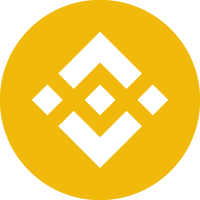


About Polygon (MATIC)
What Is Polygon?
Formerly known as Matic Network, Polygon is a unique protocol and framework designed for constructing and interlinking Ethereum-compatible blockchain networks. It has been skillfully engineered to counter some of the most notable drawbacks of the Ethereum blockchain, such as scalability issues and high transaction fees. With its robust, efficient, and flexible solutions, Polygon is revolutionizing the blockchain realm.
In a world where Ethereum maintains a significant influence over the blockchain industry, Polygon has successfully marked its presence, garnering the attention of developers and users alike. Established in 2017 by three passionate blockchain developers - Jaynti Kanani, Sandeep Nailwal, and Anurag Arjun, Polygon was born out of the shared aspiration to make blockchain technology more accessible and beneficial to all.
The primary goal of Polygon is to metamorphose Ethereum into a multi-chain ecosystem, often referred to as the 'Internet of Blockchains'. The design of Polygon promotes an environment where a multitude of blockchains can operate concurrently, while maintaining the capacity to interact and exchange information amongst themselves. These interconnected networks are known as 'Polygon chains'.
Flexibility is a key distinguishing factor of Polygon. It grants developers the liberty to launch any application, with the freedom to decide on scalability, security, sovereignty, and more. This means Polygon can accommodate multiple applications, each with its unique demands and specifications, thereby expanding the applicability and usability of blockchain technology.
Resources
Whitepaper: https://github.com/maticnetwork/whitepaper/
Official website: https://polygon.technology/
How Does Polygon Work?
At a macro level, the operation of Polygon is anchored on two primary components: The Polygon SDK and the Polygon Networks.
- The Polygon SDK: A flexible, modular, and open-source framework, the Polygon SDK equips developers with the capability to construct efficient and scalable Ethereum-compatible blockchains that can either stand alone or be secured chains. It's designed to cater to diverse types of applications and use-cases, ensuring it remains adaptable to varying developer needs.
- The Polygon Networks: These comprise different chain types, including standalone chains and secured chains. While standalone chains operate independently and are accountable for their own security, secured chains utilize the security of the Ethereum network or a pool of professional validators.
Polygon adopts a 'commit chain' approach, a key aspect of its operation. This strategy includes consolidating multiple transactions into one batch, or 'commit', which is then posted to the Ethereum mainnet. This significantly lightens the load on the Ethereum network, enabling swiffer transaction times and reduced fees.
Additionally, Polygon utilizes a 'Proof of Stake' consensus algorithm, a less resource-consuming alternative to the 'Proof of Work' algorithm used by Bitcoin networks. Validators in the Polygon network are selected based on the volume of tokens they own and are ready to 'stake' as collateral. These validators undertake the task of validating transactions and adding new blocks to the chain.
Further interoperability is achieved through bridges that facilitate secure communication between different Polygon chains and between Polygon and Ethereum. This yields an interconnected, flexible ecosystem capable of accommodating a variety of applications and use-cases.
What Is the MATIC Token?
The MATIC token, now known as the Polygon token, is an ERC-20 cryptocurrency that operates on the Ethereum network. Launched in 2017 by the Polygon team (then known as Matic Network), MATIC is not just a digital currency but also a critical element in the Polygon ecosystem. These roles include participating in the network's governance through voting, paying transaction fees, and staking in Polygon's proof-of-stake consensus mechanism to maintain network security. In essence, the MATIC token is the backbone that enables the efficient functioning and decentralization of the Polygon network. As Polygon continues to grow, so does the importance and utility of the MATIC token in the wider crypto ecosystem.
What Determines Polygon's Price?
The Polygon MATIC current price is a subject of keen interest in MATIC crypto news and is influenced by a plethora of factors. One of the key drivers is Polygon's utility as a Layer 2 scaling solution for Ethereum. As demand for quicker, more cost-effective transactions on Ethereum escalates, so does the utility—and by extension, the value—of MATIC.
This token plays a pivotal role in handling transaction fees and staking within the Polygon network. Recent data indicates a surge in decentralized application (DApp) activity on Polygon, a development that has positively influenced the MATIC USD price today. Governance matters like upgrades to Polygon 2.0 also significantly impact investor sentiment and thus, MATIC's price fluctuations.
Legal and regulatory landscapes are other essential factors in determining the MATIC price today. For example, a favorable court decision for XRP had a ripple effect on MATIC, causing a notable uptick in its price. Market sentiment, as often represented in real-time MATIC price charts and the MATIC coin market cap, is susceptible to such external events.
Moreover, MATIC's capped supply of 10 billion tokens adds an element of scarcity, which is generally considered a bullish indicator in MATIC coin latest updates and Polygon MATIC price prediction analyses.
Investor behaviors, such as trading volume and liquidity, contribute another layer to MATIC's price mechanism. Elevated trading volumes are often symptomatic of strong investor interest, which can lead to price volatility. If you're contemplating whether to buy MATIC Polygon or explore Polygon MATIC investment options, vigilance on these variables can offer invaluable insights.
So, is MATIC a good buy? Like any financial endeavor, it carries inherent risks and demands a cautious approach. However, its rising utility, constrained supply, and growing adoption suggest that it's a token worth monitoring closely.
In summary, the Polygon MATIC current price isn't merely a figure; it's an outcome of intricate interplays among utility, demand, the legal environment, and investor sentiment. Whether you're an experienced trader or a prospective investor, a deep understanding of these dynamics can guide you in making well-informed decisions in the ever-changing crypto marketplace.
Conclusion
Polygon is a shining beacon in the quest to resolve Ethereum's scalability issues. By facilitating an ecosystem that supports interconnected blockchain networks, it has provided a solution that could potentially result in faster, safer, and more economical transactions, thereby paving the way for broader adoption of blockchain technology.
As we continue to navigate the era of digital decentralization, gaining a thorough understanding of tools like Polygon is increasingly crucial. By addressing the limitations of the Ethereum network, Polygon not only enhances current systems but also lays a foundation for future advancements in the blockchain sector.
Related Articles about Polygon
Polygon to USD conversion rate trend
The price of Polygon has not been updated or has stopped updating. Information on this page is for reference only.
Start by learning the basics of Polygon: What is Polygon and how does Polygon work?
You can also check other cryptocurrency converters, such as BTC to USD and ETH to USD.
Bitcoin conversion tables
BTC to USD
USD to BTC
Ethereum conversion tables
ETH to USD
USD to ETH
Popular Bitcoin Converter
- 1
- 2
- 3
- 4
- 5
Popular Ethereum Converter
- 1
- 2
- 3
- 4
- 5
Bitget Earn
APR
Buy other cryptocurrencies










